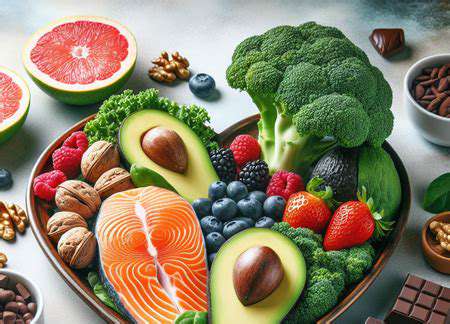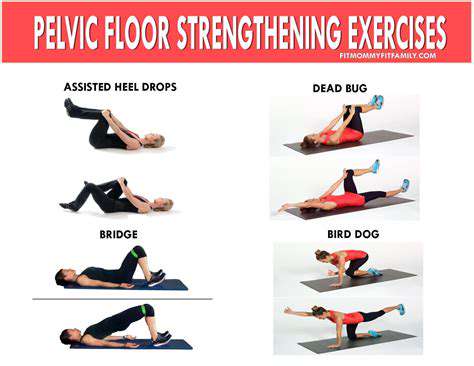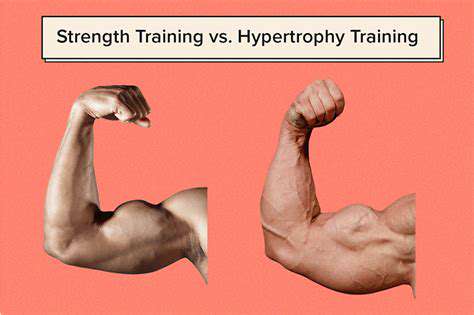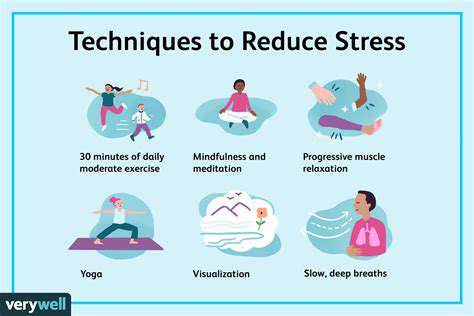Best Foods for Boosting Collagen Production
Hydration is Key for Collagen Health
The Crucial Role of Water in Collagen Synthesis
Staying hydrated is fundamental to collagen production. Water acts as a crucial solvent, transporting nutrients like amino acids, vitamins, and minerals throughout the body, which are essential building blocks for collagen. Dehydration can hinder the body's ability to synthesize collagen effectively, leading to weaker connective tissues and potentially impacting skin elasticity and joint health. Maintaining adequate hydration is a vital step in supporting optimal collagen production and overall well-being, ensuring the body has the necessary resources to create this important protein.
Sufficient water intake also helps in the removal of waste products from the body. These waste products can accumulate and potentially interfere with the collagen production process. By flushing out toxins, water allows the body to function more efficiently, thus supporting the creation of collagen, which contributes to healthy tissues and organs. This process is an integral part of maintaining a healthy body and supports collagen production.
Essential Nutrients for Collagen Production and Hydration
Certain nutrients play a vital role in collagen synthesis, and hydration is intricately linked to their absorption and utilization. For example, vitamin C is a powerful antioxidant that promotes collagen production, and adequate water intake helps the body absorb this crucial vitamin effectively. Consuming foods rich in vitamin C, like citrus fruits and berries, alongside sufficient water intake, is a powerful combination in supporting healthy collagen levels.
Furthermore, minerals like silicon and zinc are also important for collagen production. Water helps to transport these minerals to the cells where they are needed, enabling the body to utilize them effectively in collagen synthesis. Incorporating foods rich in these minerals, like leafy greens and nuts, into your diet alongside a sufficient water intake is a beneficial strategy for promoting optimal collagen production.
Protein, a building block of collagen, also needs water to be properly digested and utilized. Adequate hydration helps the body break down protein into amino acids, the raw materials for collagen synthesis. Water is essential for optimal digestive function, thereby ensuring that the body can effectively utilize protein from food sources for collagen production. A well-balanced diet rich in protein and sufficient water intake is crucial for maintaining healthy collagen levels.
Hydration and Collagen's Role in Skin Health
Hydration is directly connected to skin health, and collagen plays a key role in maintaining skin's firmness and elasticity. Water helps keep skin hydrated, preventing dryness and wrinkles. Collagen provides structure and support to the skin, and sufficient hydration allows it to function optimally. A lack of hydration can lead to dull, dry skin, and insufficient collagen production can result in sagging and wrinkles.
Maintaining healthy skin requires a combination of factors, including collagen production and hydration. Drinking enough water helps to deliver nutrients to the skin cells and promotes collagen synthesis, thereby maintaining a youthful and healthy complexion. Adequate hydration and collagen production work synergistically to keep skin looking its best.
Hydration and Collagen Support for Joint Health
Collagen is a crucial component of joint health, providing structure and cushioning to cartilage. Adequate hydration is essential to support this function. Water helps lubricate joints, allowing for smooth movement and reducing friction. Sufficient water intake also helps to flush out waste products that can accumulate in the joints, potentially contributing to discomfort and inflammation.
Maintaining healthy hydration levels and ensuring sufficient collagen production are important for maintaining the health and function of joints. This combination of factors helps to support healthy cartilage, contributing to reduced joint pain and improved mobility. A well-hydrated body is better equipped to maintain healthy joints and promote overall well-being.

Read more about Best Foods for Boosting Collagen Production
Hot Recommendations
-
*Guide to Managing Gout Through Diet
-
*Best Habits for Financial Well being
-
*How to Build a Routine for Better Mental Health
-
*How to Eat Healthy on a Budget [Tips & Meal Ideas]
-
*Guide to Practicing Self Acceptance
-
*How to Incorporate More Movement Into Your Day
-
*Guide to Managing Chronic Pain Naturally
-
*Guide to Building a Reading Habit for Well being
-
*Top 5 Weight Loss Supplements That Actually Work
-
*Best Exercises for Postpartum Recovery [Beyond Abdominal Work]




![HIIT Workout for Fat Loss [20 Minute Routine]](/static/images/26/2025-05/Exercises28Example293A.jpg)





